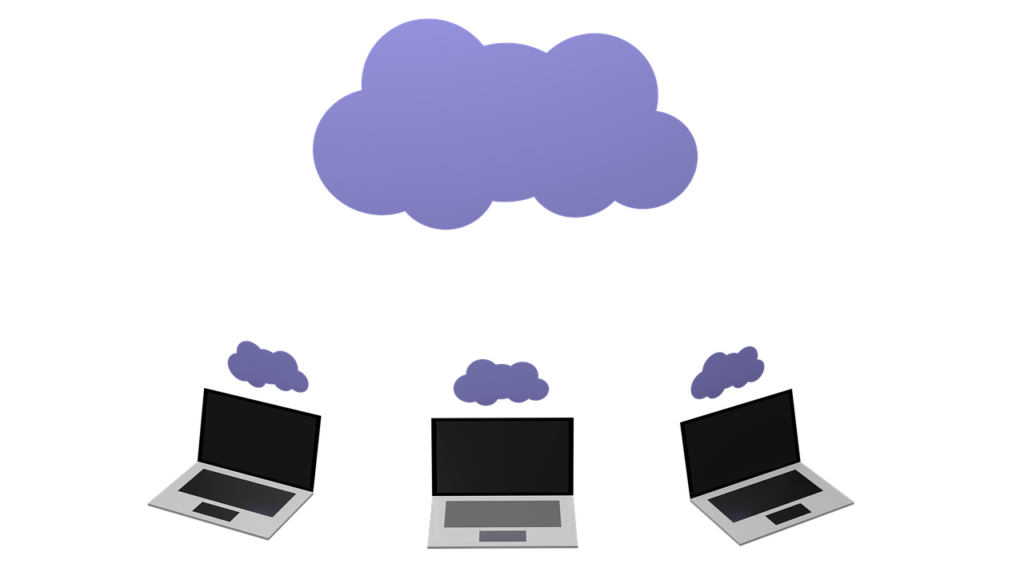Cloud Computing Services: Revolutionizing the Digital World – In today’s digital age, cloud computing has emerged as a game-changer, offering a wide range of services that have transformed the way individuals and businesses store, manage, and access data. This article explores the world of cloud computing services, shedding light on its various aspects and why it has become an essential part of the modern IT landscape.
Cloud Computing Services: Revolutionizing the Digital World

Introduction to Cloud Computing
The concept of cloud computing is based on delivering various services over the internet. Instead of relying on local servers or personal devices to handle applications, data, and other resources, cloud computing allows you to access everything you need via the web.
Types of Cloud Computing Services
- Infrastructure as a Service (IaaS): IaaS provides virtualized computing resources over the internet. It includes services like virtual machines, storage, and networking.
- Platform as a Service (PaaS): PaaS offers a platform for developers to build, deploy, and manage applications without worrying about the underlying infrastructure.
- Software as a Service (SaaS): SaaS delivers software applications over the internet, eliminating the need for installation and maintenance.
Advantages of Cloud Computing Services
- Cost-Efficiency: Cloud services often prove to be more cost-effective than traditional IT solutions as you only pay for what you use.
- Scalability: Cloud resources can be scaled up or down according to your requirements, providing flexibility.
- Accessibility: Data stored in the cloud can be accessed from anywhere, making it convenient for remote work.
Disadvantages of Cloud Computing Services
- Security Concerns: While cloud providers implement robust security measures, data breaches are still a concern.
- Downtime: Unplanned outages can affect business operations, although cloud providers strive for high uptime.
Choosing the Right Cloud Service
Selecting the most suitable cloud service for your needs depends on factors like your business size, IT infrastructure, and budget.
Popular Cloud Service Providers
- Amazon Web Services (AWS): AWS is a dominant player in the cloud market, offering a wide array of services and solutions.
- Microsoft Azure: Azure is known for its robust PaaS offerings and strong integration with Microsoft products.
- Google Cloud Platform (GCP): GCP provides a broad range of cloud services and excels in data analytics.
Cloud Security Measures
Cloud providers implement security features like encryption, multi-factor authentication, and firewall protections to safeguard your data.
Scalability in Cloud Computing
The ability to scale resources on demand is one of the core advantages of cloud computing. This feature allows businesses to respond quickly to changing workloads.
Cost-Efficiency of Cloud Services
Cloud computing can lead to significant cost savings as it eliminates the need for extensive in-house hardware and infrastructure.
Cloud Computing in Business
Many businesses are adopting cloud services to streamline their operations and reduce costs. The flexibility of the cloud can be a game-changer in various industries.
Future Trends in Cloud Computing
Cloud computing continues to evolve, with trends like serverless computing, edge computing, and hybrid cloud solutions gaining momentum.
Case Studies of Successful Cloud Implementations
We can learn valuable insights from companies that have successfully implemented cloud solutions to improve their efficiency and competitiveness.
Steps to Migrate to the Cloud
Migrating to the cloud requires careful planning and execution. This section outlines the essential steps for a smooth transition.
Importance of Data Backup in the Cloud
Data loss can be catastrophic. Learn why backing up your data in the cloud is crucial and how to do it effectively.
Conclusion
In conclusion, cloud computing services have become an integral part of the digital world. Their advantages in terms of cost-efficiency, scalability, and accessibility are reshaping the way we work and store data. By choosing the right cloud service and implementing proper security measures, individuals and businesses can harness the full potential of this revolutionary technology.
FAQs
1. What is the difference between IaaS, PaaS, and SaaS in cloud computing?
In cloud computing, IaaS provides infrastructure, PaaS offers a platform for development, and SaaS delivers software applications. Each serves a different purpose in the cloud ecosystem.
2. How can businesses ensure the security of their data in the cloud?
Businesses can enhance cloud security by implementing measures like encryption, multi-factor authentication, and regular security audits.
3. Are there any free cloud services available for personal use?
Yes, many cloud providers offer free plans with limited storage and features for personal use.
4. What is the role of hybrid cloud solutions in modern IT environments?
Hybrid cloud solutions combine public and private cloud infrastructure, offering greater flexibility and data control for businesses.
5. How do I decide which cloud service provider is best for my business?
The choice of cloud provider depends on your specific needs, budget, and IT infrastructure. It’s essential to evaluate your requirements carefully before making a decision.




